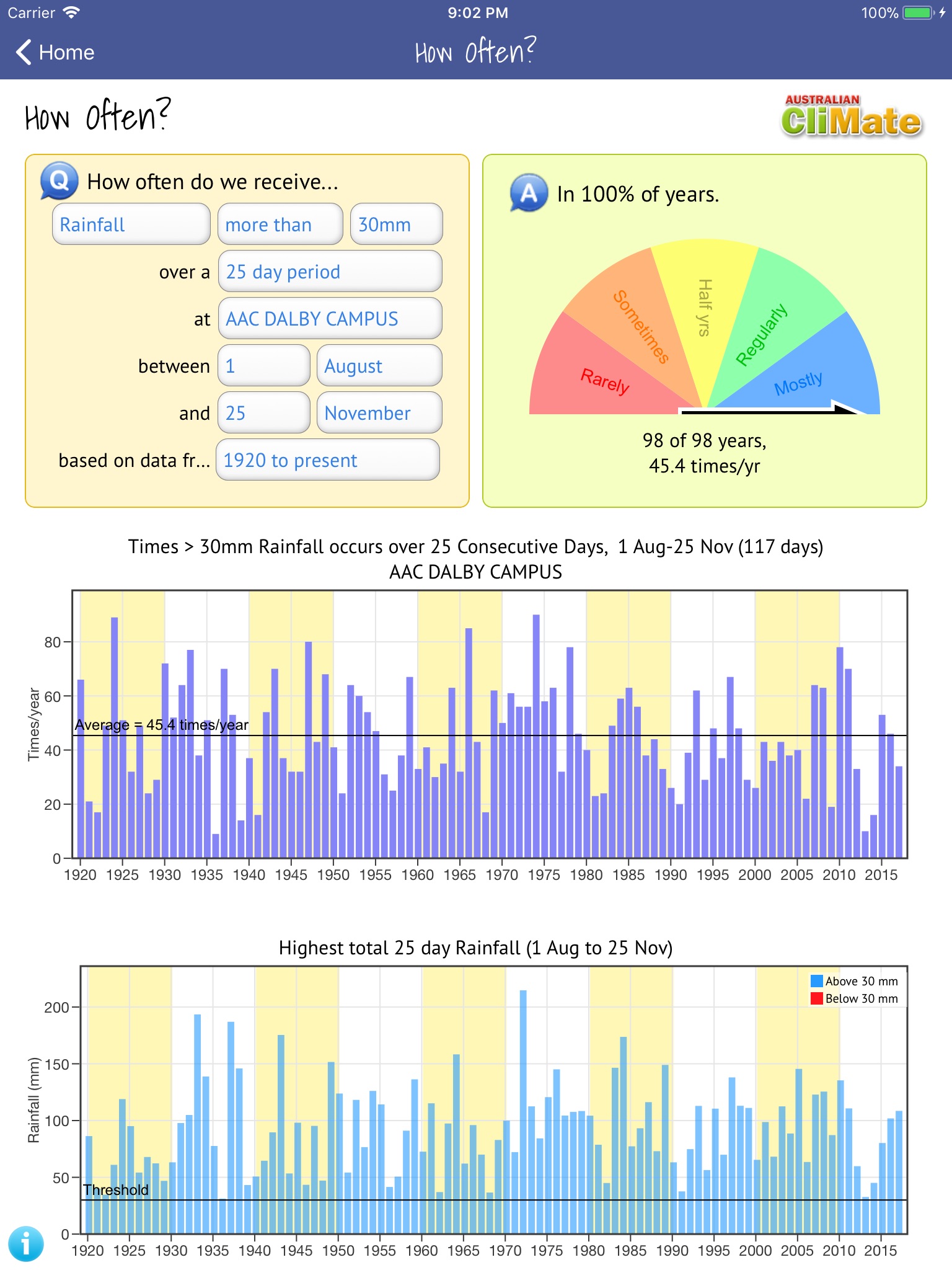
Australian CliMate app for iPhone and iPad
Developer: DHM Software
First release : 01 Mar 2018
App size: 0 Bytes
CliMate analyses are structured around the following questions:
(1) Season’s progress? When adjusting inputs during a crop or pasture season, how does the current season compare with previous conditions in terms of rainfall, temperature, heat sum or radiation?
(2) How often? What is the chance of a sowing event based on amount of rainfall over 5 days? How often is a heat sum achieved in a set period of time? What is the probability of temperature being below a critical level for germination or flowering?
(3) How wet? N? How much water and nitrate have I stored over the fallow? This may help me adjust inputs to better match yield expectations.
(4) Potential Yield? is a re-enactment of the Potential Yield calculator (PYCAL) first developed by S and D Tennant, Western Australian Department of Agriculture in 1993 and 2000.
(5) Hows the drought? provides a daily update of drought status for an location
(6) How hot-cold? When determining an ideal sowing date, when are heat and cold stresses lowest for the optimum flowing time?
(7) How likely? Based on current ENSO conditions, what is the probability that rainfall or temperature is greater than or less than key thresholds (e.g. terciles, median) and how reliable have these forecasts been in the past?
(8) How’s El Nino? What is the current ENSO status based on key atmospheric and oceanic indicators? What is the Australian Bureau of Meteorology’s interpretation of this?
(9) How’s the Past? Presents views of monthly and annual rainfall and temperature summaries to allow you to explore relationships and patterns.
(10) What Trend? plots weather records to explore trends. A time series graph with a line of best fit (least sum of squares), differences from the mean and cumulative differences (residual mass curves) provide other views of long term data.



